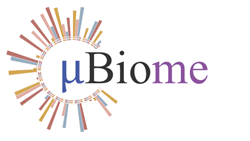 New research using an Apple Watch app to track seizures in people with epilepsy finds triggers are often stress and missed sleep, according to a preliminary study released today that will be presented at the American Academy of Neurology's 69th Annual Meeting in Boston, April 22 to 28, 2017. For the 10-month study, 598 people signed up to track their seizures with an app called EpiWatch built using ResearchKit, a software framework designed by Apple to make it easy for researchers to gather data more frequently and more accurately from participants using iPhone and Apple Watch...
New research using an Apple Watch app to track seizures in people with epilepsy finds triggers are often stress and missed sleep, according to a preliminary study released today that will be presented at the American Academy of Neurology's 69th Annual Meeting in Boston, April 22 to 28, 2017. For the 10-month study, 598 people signed up to track their seizures with an app called EpiWatch built using ResearchKit, a software framework designed by Apple to make it easy for researchers to gather data more frequently and more accurately from participants using iPhone and Apple Watch...
ResearchKit
See the following -
Apple Announces Advancements to ResearchKit
Apple today announced advancements to the open source ResearchKit framework that bring genetic data and a series of medical tests typically conducted in an exam room to iPhone apps. Medical researchers are adopting these new features to design targeted studies for diseases and conditions that affect billions of people around the world and to gather more specific types of data from participants. “The response to ResearchKit has been fantastic. Virtually overnight, many ResearchKit studies became the largest in history and researchers are gaining insights and making discoveries that weren’t possible before,” said Jeff Williams, Apple’s chief operating officer...
- Login to post comments
Apple Introduces ResearchKit, Giving Medical Researchers the Tools to Revolutionize Medical Studies
Apple® today announced ResearchKit™, an open source software framework designed for medical and health research, helping doctors and scientists gather data more frequently and more accurately from participants using iPhone® apps. World-class research institutions have already developed apps with ResearchKit for studies on asthma, breast cancer, cardiovascular disease, diabetes and Parkinson’s disease.* Users decide if they want to participate in a study and how their data is shared. Read More »
- Login to post comments
Apple Just Hired a Guy Who Could Completely Re-Invent the Company
Apple is quietly building one of the strongest teams in digital health, and on Thursday, it just added perhaps its most high-profile hire yet. Stephen Friend, co-founder and President of Sage Bionetworks, is joining Apple's healthcare team, Sage Bionetworks announced on Thursday. Apple said it had “nothing more to share about his role or title." Before Sage, Friend was an executive at Merck and a faculty member at Harvard Medical School...
- Login to post comments
Apple’s CareKit Is the Best Argument Yet for Strong Encryption
On the eve of his company’s court date with the FBI, where it will defend its right to not weaken the security of its own devices, Apple CEO Tim Cook took the stage at a small theater in Cupertino to introduce a few new devices. The message of the event’s opening, though? Encryption matters. And soon, on iOS, it will matter even more. While Cook’s remarks were brief, they were determined. “We need to decide as a nation how much power the government should have over our data, and over our privacy,” Cook said before a mixed crowd of journalists and Apple employees.
- Login to post comments
How Apple’s Purchase of Startup Reveals Health Data Strategy
 Apple’s recent acquisition of health startup Gliimpse is the latest in a long series of strategic moves by the Cupertino, Calif.-based company to capture mindshare and market share in a healthcare industry increasingly reliant on data. News of the tech giant’s purchase of Gliimpse—a personal health record aggregator—did not come from Apple, which does not comment on its acquisitions or the strategy behind them. Reports of the acquisition first surfaced in Fast Company, a business magazine that covers the technology industry...
Apple’s recent acquisition of health startup Gliimpse is the latest in a long series of strategic moves by the Cupertino, Calif.-based company to capture mindshare and market share in a healthcare industry increasingly reliant on data. News of the tech giant’s purchase of Gliimpse—a personal health record aggregator—did not come from Apple, which does not comment on its acquisitions or the strategy behind them. Reports of the acquisition first surfaced in Fast Company, a business magazine that covers the technology industry...
- Login to post comments
Sage Bionetworks Releases First-of-its-Kind Data from Parkinson’s iPhone Study
 Sage Bionetworks, a nonprofit biomedical research organization, today released an unparalleled dataset that captures the everyday experiences of more than 9,500 people to help speed scientific progress toward treatments for people with Parkinson’s disease. The dataset, which consists of millions of data points collected on a nearly-continuous basis through the iPhone app mPower, will provide researchers with unprecedented insight into the daily changes in symptoms and effects of medication for people with Parkinson’s.
Sage Bionetworks, a nonprofit biomedical research organization, today released an unparalleled dataset that captures the everyday experiences of more than 9,500 people to help speed scientific progress toward treatments for people with Parkinson’s disease. The dataset, which consists of millions of data points collected on a nearly-continuous basis through the iPhone app mPower, will provide researchers with unprecedented insight into the daily changes in symptoms and effects of medication for people with Parkinson’s.
- Login to post comments
Seizures Tracked with Apple Watch App Linked to Stress, Missed Sleep
- Login to post comments
Timeline: How Apple Is Piecing Together its Secret Healthcare Plan
Rumors are at a fever pitch that Apple has big plans for healthcare, including putting a medical record on the iPhone, possibly acquiring its way into the EHR market. From its leap into healthcare in 2014 with its HealthKit application programming interface in September 2014 to the June 19 revelation of Apple’s work with the tiny start-up Health Gorilla, Apple has made a series of moves in healthcare that clearly indicate the company has plans for the space that will somehow manifest on its mega-popular iPhone and iPad products. Here’s a look at how Apple got to where it is today in healthcare...
- Login to post comments
uBiome Launches First Microbiome App Using ResearchKit; Initial focus is on Relationship Between Gut Bacteria and Weight Loss
 iPhone users can now explore their gut bacteria, and also contribute to research about the relationship between the microbiome and human body weight with the launch of a ground-breaking app launched by the microbiome-testing company uBiome, which uses the ResearchKit framework designed by Apple. The app itself is free, and the first 1,000 users will also qualify for free microbiome testing, usually priced at $89.
iPhone users can now explore their gut bacteria, and also contribute to research about the relationship between the microbiome and human body weight with the launch of a ground-breaking app launched by the microbiome-testing company uBiome, which uses the ResearchKit framework designed by Apple. The app itself is free, and the first 1,000 users will also qualify for free microbiome testing, usually priced at $89.
- Login to post comments
Why We Shouldn’t Call Apple ResearchKit and CareKit ‘Platforms’
It’s no secret that getting people to engage in their health is one of our generation’s biggest challenges. Digital health engagement, especially, is often discussed as “a huge opportunity,” but the reality is that while people are interested in their health, it’s still incredibly difficult to get them to use digital tools consistently. Enacting behavior change is still a mostly elusive process...
- Login to post comments
Yes, You Can Reconcile The Wide Sharing Of Personal Medical Research Data With Greater Participant Control
 Although the benefits of sharing big datasets are well-known, so are the privacy issues that can arise as a result. The tension between a desire to share information widely and the need to respect the wishes of those to whom it refers is probably most acute in the medical world. Although the hope is that aggregating health data on a large scale can provide new insights into diseases and their treatments, doing so makes issues of consent even trickier to deal with. A new study of Parkinson's disease from Sage Bionetworks, which describes itself as a "non-profit biomedical research organization," takes a particularly interesting approach. Unusually, it used an iPhone app to gather data directly from the participants...
Although the benefits of sharing big datasets are well-known, so are the privacy issues that can arise as a result. The tension between a desire to share information widely and the need to respect the wishes of those to whom it refers is probably most acute in the medical world. Although the hope is that aggregating health data on a large scale can provide new insights into diseases and their treatments, doing so makes issues of consent even trickier to deal with. A new study of Parkinson's disease from Sage Bionetworks, which describes itself as a "non-profit biomedical research organization," takes a particularly interesting approach. Unusually, it used an iPhone app to gather data directly from the participants...
- Login to post comments